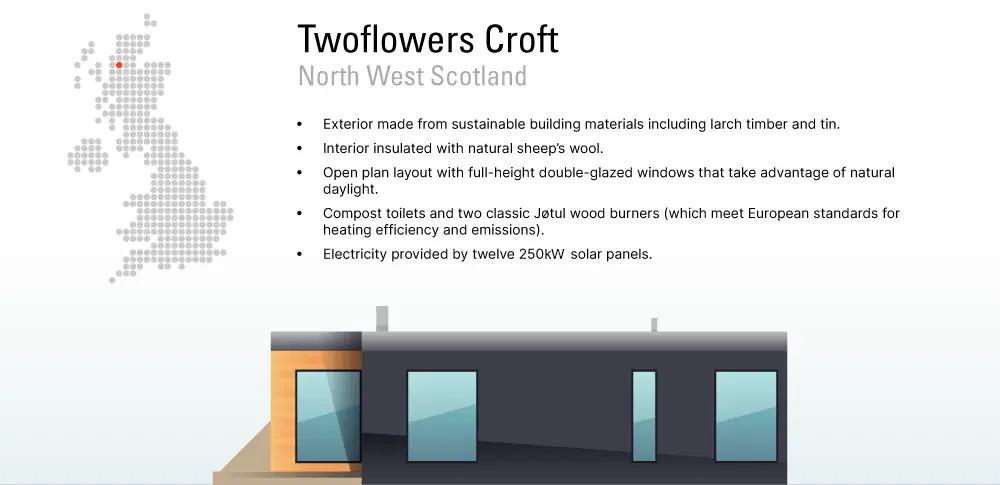Cookies help us deliver our services. By using our services, you agree to our use of cookies.
Welcome to Viessmann United Kingdom!
Viessmann United States

The topic of reducing carbon emissions has been at the forefront of the UK’s news agenda of late. With the 47th G7 summit held in Cornwall at the start of June - which saw leaders from seven of the world’s most influential countries meet to discuss solutions to cutting emissions and limiting the rise in global temperatures - as well as several domestic ‘green’ bills passing through parliament in recent months, global warming and climate change finally appear to be being taken more seriously.
One sector in which this is most apparent is the construction industry. In January 2021, the Ministry of Housing announced groundbreaking new legislation that will see all new domestic buildings in the UK constructed to new highly energy efficient standards, with the aim of all future homes built by 2025 being ‘zero carbon ready’.
Here at Viessmann, this got us thinking about some of the most efficient eco homes that already exist in the UK and how architects, builders and energy companies could look to them for inspiration ahead of this exciting new chapter in the nation’s fight against climate change. From truly sustainable building materials and eco-lead design to revolutionary heat pump, borehole and solar technology, here are five exceptionally designed eco homes around the UK that could provide helpful blueprints going forward.
1. Twoflowers Croft - North West Scotland

Completely off grid and located overlooking a loch in the north west of Scotland, Twoflowers Croft is one of the most sustainable eco homes in Britain. This small dwelling, which measures just 40msq and also includes a self-contained office space, is made from sustainable materials including larch timber and tin, which protect the exterior from the elements. The interior, on the other hand, is heavily insulated with natural sheep’s wool and features a surprisingly spacious open plan layout and full height double glazed windows that take advantage of natural daylight for heating and lighting.
Twoflowers Croft’s green features also include compost toilets, two classic Jøtul wood burners (which have met the European standard for both heating efficiency and emissions), and twelve 250kW solar panels on the south face of the home. These features ensure the home can remain totally off grid and guarantee this stunning home is 100% self sufficient when it comes to heating and electricity.
2. Lowen - St Austell, Cornwall
Lowen, located in St Austell, Cornwall, should serve as a blueprint for anyone wanting to build their own eco home. Totally self-sufficient when it comes to household energy, this house - which impressively contains an open plan kitchen, dining and living space, four bedrooms and two bathrooms - is constructed from a sustainable reclaimed timber frame, straw bales and lime mortar, all finished off with breathable eco-paint.
Lowen, which stands for ‘low energy’ and is also the Cornish word for ‘happy’, also features an array of impressive energy-efficient green tech. From solar PV panels to a ground source heat pump and a concrete base that acts as a thermal store, this home provides all of its own electricity, heating and hot water, and is officially zero-carbon rated
3. Oakwood House - Gloucestershire
A timber-clad home overlooking Gloucester, from the outside, Oakwood House resembles a typically modern contemporary residence rather than a state-of-the-art eco home. However, Oakwood makes use of a number of revolutionary design features to save energy and reduce its carbon footprint. Heavyweight concrete internal floors and walls have been utilised throughout the home which intelligently take advantage of natural daylight, for example. This keeps the home warm in winter and cool during the summer months, as well as exceptionally well lit.
However, it’s this building’s use of natural water that is so impressive. Each of this unique home’s spacious seven rooms is heated entirely from a ground source heat pump, while rainwater from the roof is collected into a buried 10,000-litre tank and used for irrigation in the sustainable garden, washing appliances and toilet flushes.
4. Lyth Valley Cottage - The Lake District
An old cottage that has recently been renovated with a green twist, Lyth Valley Cottage in the Lake District is almost entirely constructed of local materials and features an array of energy-saving renewable technologies.
Ground source heat pump and borehole technology is able to heat the whole home using a smart underfloor heating system, while a contemporary glazed extension - which was approved by the Lake District National Park Authority - not only follows the contours of the existing roofline and ensures the house fits into its natural surroundings, it also uses natural daylight very economically. This helps to light and heat the cottage without the need for unnecessary extra fossil fuel-powered appliances. Finally, a sedum roof has been fitted to provide additional insulation to the cottage and create a natural space for local wildlife to thrive.
5. The Studio - Hove , East Sussex
Built from natural materials including zinc roofing, oak panel cladding and flooring, innovative natural wood-fibre and hemp insulation, fully recycled kitchen work surfaces and lime-based natural paints, this property is an award-winning zero-carbon detached house and studio that has been built to consume only half the energy of the average UK home.
Aside from its green building materials, this eco home is heated entirely by solar thermal panels and a wood chip biomass boiler, while solar photovoltaic panels generate all the electricity required. Additionally, this green house uses a rainwater harvesting system to provide water for the garden, as well as for the washing machine and toilets. It even features a sedum roof which encourages wildlife and provides further insulation.
So there you have it! From homes that disguise the genius of their smart energy-saving features with contemporary aesthetics to houses that unashamedly display and flaunt their intelligent green designs, there are truly eco home blueprints for all tastes and budgets. Have you made any eco changes to your home in order to cut your carbon emissions and reduce energy costs? Join the conversation on social media using the hashtag #NetZeroHomes.

Which heat pump is the best for you?
- Boiler services - A complete guide for homeowners
- Is underfloor heating efficient?
- What temperature is a heat pump not effective?
- Why is my heat pump icing up?
- Do heat pumps need servicing regularly?
- Does a boiler cupboard need ventilation?
- How to hide a boiler in the kitchen
- Which boiler do I need for my home?
- Understanding the Boiler Upgrade Scheme
- Heat Pump Grants
- UK Eco-Grants: A Quick Guide
- Visualising a ‘net-zero’ Britain
- Visualising the number of trees needed to offset UK’s carbon footprint
- How to grow trees in the UK?
- Carbon labelling household activities
- What will the family of the future look like in 2050?
- 7 tips for making Bonfire Night 2020 one to remember
- How green do Brits think they are?
- The carbon labelling of Britain's favourite recipes
- The carbon footprint of (nearly) everything

Which heating system is the best for you?
Customer Support